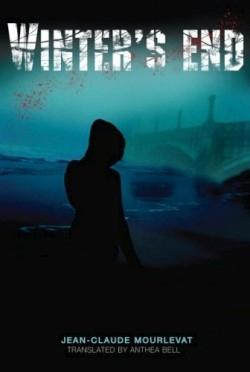Winter's End
Famed French author Jean-Claude Mourlevat, known for his theatrical works, offers up a tumultuous and satisfying read as his first slice of YA fiction. Winter’s End reveals characters’ brave and vulnerable souls in a harrowing account of rebellion and camaraderie under oppressive rule.
When thoughts of freedom suddenly become as tangible as their cold, grinding, institutional life, two boarding school students take an unthinkable risk and run away. As details and perspectives add up, a world of political suppression and violence is exposed which threatens great consequences for these orphans of the Resistance.
Mourlevat’s narrative reveals a strong belief in the interconnectedness between people and between history and the present. Witness to almost unbelievable and heart-wrenching coincidences, the reader cannot help but succumb to the idea of fate; as young characters demonstrate the passion and pain of fighting for what they believe to be right, losing and gaining friends along the way, solidarity among the oppressed emerges as a prominent theme of the novel.
Set in a society overruled by a group called the Phalange, the story’s realism frays only at the edges; the appearance of human-animal hybrids (dog-men and horse-men) is easily subsumed into the bleakness of the tale itself and does not distract from the emotional turmoil at the book’s core.
The weight of their destinies, and the choice of whether to become crucial support or public icons, lies heavily on the shoulders of teenagers Helen, Bartolomeo, Milos, and Milena. They learn that freedom comes at no small sacrifice, and none are unaware that their efforts occasion the suffering of others. The interior dilemmas and loss experienced by these protagonists are vivid and heartbreaking-nevertheless this group finds momentum and optimism and, as the title predicts, hope for an end to their chilling oppression by the Phalange.
Mourlevat succeeds in bringing this dystopia to life through a multifaceted approach to voice and the emotional and historical depth of his plotlines. Older teens will enjoy Winter’s End’s complexity and will appreciate its frank, never-flowery assessments of both adversity and joy.
Disclosure: This article is not an endorsement, but a review. The publisher of this book provided free copies of the book to have their book reviewed by a professional reviewer. No fee was paid by the publisher for this review. Foreword Reviews only recommends books that we love. Foreword Magazine, Inc. is disclosing this in accordance with the Federal Trade Commission’s 16 CFR, Part 255.

